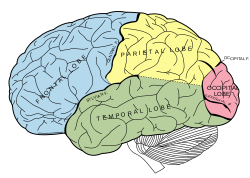
Lately, I can’t seem to get enough of learning about brain science — neurological stuff, psychological stuff, whatever. Bring it on. There’s an amazing explosion of learning going on about our brains, and our minds (and how our brains give rise to our minds, and vice-versa).
I can’t help but think this is all great news for designers of all stripes. How can it but help for us to better understand how cognition works, how we make decisions, how our identities are formed and change over time, or even what it means for us to be happy? There are a few really excellent articles I’ve run across recently (and seen lots of folks linking to from Twitter as well).
First, this beautifully written, deeply human piece in The Atlantic on “What Makes Us Happy?” It follows a unique, longitudinal study of a generation of men who were first measured and tracked at Harvard in the 30s, as mere teenagers. It’s deftly honest about the inherent limitations in such work, but shows how valuable the results have been anyway. Mainly it’s worth reading because of its poignancy and introspection.
Another article: “Don’t! The Secret of Self Control” is from Jonah Lehrer, who’s fast becoming the Carl Sagan of Neuroscience. (And I mean that in nothing but a good way.) It looks at discoveries regarding delayed gratification, and how it’s connected to intelligence, maturity and general life success over time.
And another from the New Yorker: “Brain Games” about behavioral neurologist Vilayanur S. Ramachandran, who has figured in a number of things I’ve heard and read lately about brain science. (Reading the article requires free registration, but do read it!) I found myself wishing I could quit my job and go to UC San Diego for a completely unnecessary degree, just so I could have regular conversations with this guy and his colleagues. Among the coolest stuff discussed: how deeply social we are without even knowing it, how we construct our identities, and the possibility that we might measurably discover how human consciousness emerged, and how it works.
I can’t get over how exciting all this subject matter is to me. I suppose it’s because it combines all my favorite stuff … it’s answering questions that philosophy, theology and the creative arts have been gnawing at for generations.


